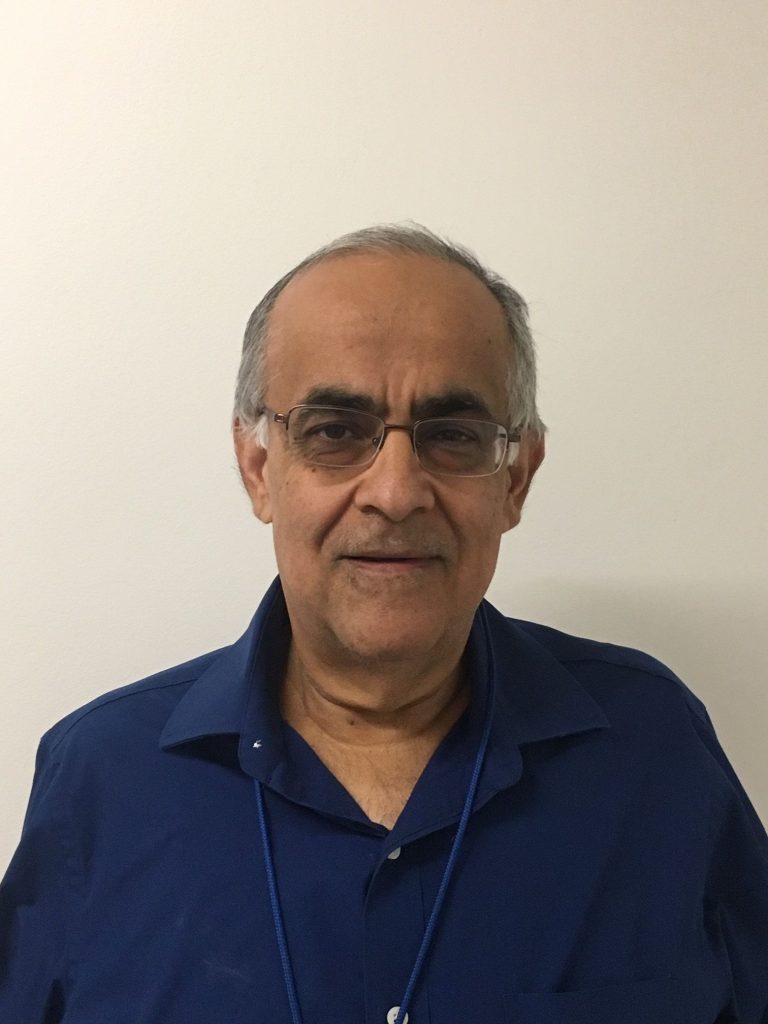AI4IA Colloquium Speaker: Rakesh (Teddy) Kumar
Semantically Guided Collaborative Navigation, Mapping, Planning and Control for Manned/Unmanned Platforms

Center for Vision Technologies SRI International, Princeton, NJ-08543, USA
Friday May 7th, 2021, 12-1 PM (EDT), Virtual Zoom Meeting
Abstract: Classical metric navigation systems use GPS and/ or prior 2D and 3D maps for localization of manned and unmanned platforms. However, these systems do not operate in GPS challenged or denied environments. Metric map-based navigation systems are also not robust to dynamic scene changes. In this talk, we will describe various methods we have developed to incorporate AI derived semantic information into metric navigation and mapping systems. Compared to low-level metric features, semantic information is more robust to scene changes over time and can be matched across time/space/platforms. Sharing semantic information also reduces bandwidth required for collaboration/ storage. Moreover, it enables natural language interaction between humans and mobile platforms. Finally, we will discuss how the semantic information can be used by robots to learn to navigate in unmapped areas much like humans are able to visit and navigate in new, never visited before locales.
Watch [HERE]
Biography: Rakesh “Teddy” Kumar, Ph.D., is Vice President, Information and Computing Sciences and Director of the Center for Vision Technologies at SRI International. In this role, he is responsible for leading research and development of innovative end-to-end vision solutions from image capture to situational understanding that translate into real-world applications such as robotics, intelligence extraction and human computer interaction. He has received the Outstanding Achievement in Technology Development award from his alma mater, University of Massachusetts Amherst, the Sarnoff Presidents Award, and Sarnoff Technical Achievement awards for his work in registration of multi-sensor, multi-dimensional medical images and alignment of video to three-dimensional scene models. The paper “Stable Vision-Aided Navigation for Large-Area Augmented Reality” co-authored by him received the best paper award in the IEEE Virtual Reality 2011 conference. The paper “Augmented Reality Binoculars” co-authored by him received the best paper award in the IEEE International Symposium on Mixed and Augmented Reality (ISMAR) 2013 conference.
Kumar has served on NSF review and DARPA ISAT panels. He has also been an associate editor for IEEE Transactions on Pattern Analysis and Machine Intelligence. He has co-authored more than 60 research publications, and received more than 50 patents. A number of spin-off companies have been created based on the research done at the Center for Vision Technologies. Kumar received his Ph.D. in Computer Science from the University of Massachusetts at Amherst in 1992. His M.S. in Electrical and Computer Engineering is from State University of New York at Buffalo in 1995, and his B.Tech in Electrical Engineering is from Indian Institute of Technology, Kanpur, India in 1983.
